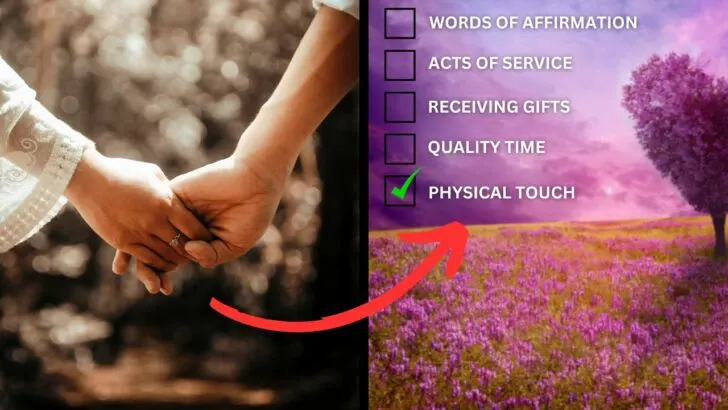In a world constantly talking about self-care and healthy relationships, understanding how we give and receive love has never been more relevant.
But did you know we all have unique ways of expressing and experiencing love? Welcome to the world of love languages!
Popularized by Dr. Gary Chapman’s best-seller “The Five Love Languages: How to Express Heartfelt Commitment to Your Mate”, love languages are all about how we feel most loved and appreciated.
Whether it’s hearing words of affirmation, quality time spent together, receiving gifts, acts of service, or physical touch, everyone has their own preferred love language.
Identifying yours is a game-changer for your relationships, and Linguaholic is here to guide you on this journey.
Understanding love languages is not just about improving your romantic relationships.
It’s a tool for enhancing your connection with friends, family, and even colleagues.
It empowers us to express love in a way the other person can fully appreciate, and it helps us understand what to look for in return.
The Five Love Languages
| LOVE LANGUAGE | DESCRIPTION |
|---|---|
| Words of Affirmation | Expressing love through spoken affection, praise, or appreciation. |
| Acts of Service | Actions, rather than words, are used to show and receive love. |
| Receiving Gifts | Gifting is symbolic of love and affection. |
| Quality Time | Expressing affection with undivided, undistracted attention. |
| Physical Touch | It can be any form of touch that is safe and appropriate to the relationship. |
We’re breaking down each of the five love languages, offering a deeper understanding of what they mean:
Identify Your Love Language
Let’s take a deeper look into the five love languages and provide specific examples for each:
Words of Affirmation
This love language is all about using words to affirm, appreciate and express love to others. Examples include:
- Complimenting your partner on their appearance or abilities.
- Expressing your gratitude for something they’ve done.
- Regularly saying “I love you” and other affirming phrases.
Acts of Service
For those who prefer this love language, actions truly speak louder than words. Some ways this can be expressed are:
- Helping out with household chores.
- Cooking a meal for your loved one.
- Taking on a task that your partner typically does.
Receiving Gifts
This love language is not about materialism, but the thought and effort behind the gift. Some examples are:
- Buying their favorite book or album as a surprise gift.
- Bringing back a memento or souvenir when you go on a trip.
- Regularly making or buying little things that show you were thinking of them.
Quality Time
This love language is about giving the other person your undivided attention. Here’s how you might express it:
- Planning a special day together based on their interests.
- Regularly setting aside time to spend together, without distractions.
- Engaging in meaningful conversations on a regular basis.
Physical Touch
For individuals who favor this love language, nothing is more impactful than appropriate touch. Examples include:
- Holding hands when you walk together.
- Regularly hugging or cuddling.
- Kissing hello and goodbye every day.
By examining these examples, you can start to identify which love language(s) resonate most with you.
Knowing your love language can significantly improve your relationships. It helps us understand our needs and communicate them better to our partners.
It also allows us to appreciate our partners in the way they want to be appreciated.
Understanding our love languages is essentially understanding ourselves better.
In this journey of self-discovery, knowing your love language is a significant milestone.
Take the Love Language Quiz
Are you looking to strengthen your relationships and gain a deeper understanding of your unique communication style and emotional needs?
Our ‘Love Language Quiz’, inspired by relationship expert Dr. Gary Chapman’s transformative concept, could be the tool you’ve been searching for.
The quiz helps you uncover your primary love language from the five known ones – Words of Affirmation, Acts of Service, Receiving Gifts, Quality Time, and Physical Touch.
Think of the ‘Love Language Quiz’ as more than just a self-discovery tool. It’s your personal guide to forging deeper connections and enhancing communication.
By identifying your love language, you’re opening a door to understanding your emotional needs and those of your loved ones in a profound way.
The quiz doesn’t provide right or wrong answers, but rather, it gives insight into your unique way of giving and receiving love.
Are you ready to discover your love language? Embark on your journey with our ‘Love Language Quiz’ today, and start building stronger, more understanding relationships.
1. When I am feeling down, I feel better when:
a) Someone spends time with me, just being present.
b) Someone does a helpful task for me.
c) I receive a heartfelt note or a message.
d) Someone gives me a comforting hug.
e) Someone surprises me with a thoughtful gift.
2. In a relationship, I feel most appreciated when:
a) I am praised or complimented.
b) I receive a gift that shows me I was thought of.
c) My partner willingly helps me with a project or chore.
d) My partner takes time to listen to me and understand my feelings.
e) My partner reaches out to touch me, even if it’s just a simple touch on the arm.
3. In my ideal relationship, my partner would often:
a) Share activities or hobbies with me.
b) Offer to help me with my responsibilities.
c) Express their love for me in words.
d) Give me a kiss or hold my hand.
e) Give me gifts, even small tokens count.
4. When I care about someone, I often show it by:
a) Telling them how much they mean to me.
b) Doing something for them that I know they would appreciate.
c) Giving them my full attention, free of distractions.
d) Touching them affectionately.
e) Buying or making something that made me think of them.
5. I feel most connected to someone when:
a) They help lighten my load by taking on tasks.
b) They physically show me affection.
c) They tell me they love me.
d) They give me their undivided attention.
e) They give me a gift that shows they understand me.
Your primary love language could be:
Mostly As – Words of Affirmation
Mostly Bs – Acts of Service
Mostly Cs – Quality Time
Mostly Ds – Physical Touch
Mostly Es – Receiving Gifts
Frequently asked questions on the topic “What is my love language”?
What are the five love languages?
The five love languages are Words of Affirmation, Acts of Service, Receiving Gifts, Quality Time, and Physical Touch.
How can I discover my love language?
You can discover your love language by reflecting on what actions make you feel most loved and appreciated. There are also online quizzes available that can guide you in identifying your love language.
Can people have more than one love language?
It’s possible to have more than one love language. People may have a primary love language that speaks more profoundly to them, but they can appreciate and resonate with other love languages as well.
Can love languages change over time?
Love languages can evolve over time due to life experiences, age, relationships, and personal growth. It’s always a good idea to periodically reassess your love language.

Hey fellow Linguaholics! It’s me, Marcel. I am the proud owner of linguaholic.com. Languages have always been my passion and I have studied Linguistics, Computational Linguistics and Sinology at the University of Zurich. It is my utmost pleasure to share with all of you guys what I know about languages and linguistics in general.






